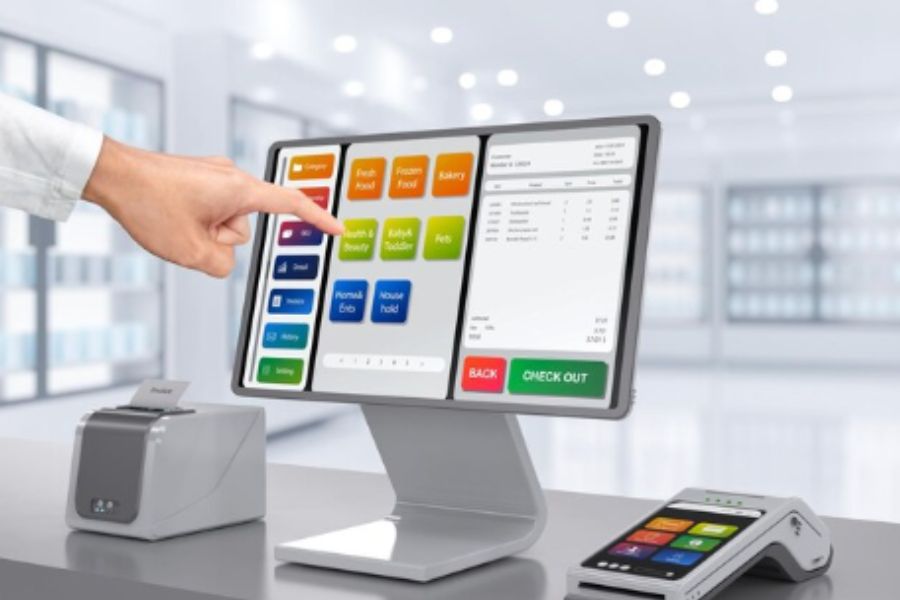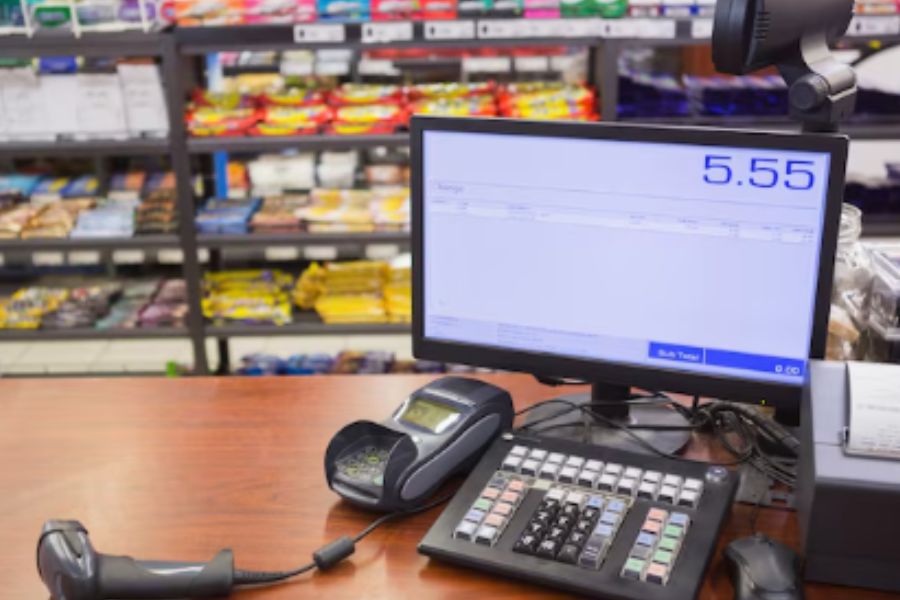Malaysia’s fast-changing market demands that retailers constantly seek ways to gain a competitive edge and meet evolving consumer demands. One crucial tool for achieving this is retail POS analytics. Retail POS analytics refers to using data from point-of-sale systems to derive valuable insights for business decision-making. In this dynamic landscape, harnessing the power of retail POS analytics can offer numerous benefits to retailers, from optimizing inventory management to enhancing customer experiences.
The fast-changing retail market in Malaysia
In the past, the retail market in Malaysia was predominantly characterized by traditional brick-and-mortar stores, with limited competition and a relatively stable consumer base. However, in recent years, significant shifts have occurred, leading to a fast-changing retail landscape in the country.
- The surge of e-commerce: The increasing number of internet users in Malaysia has led to a significant surge in e-commerce. The e-commerce market in Malaysia is experiencing impressive growth rates, presenting significant opportunities for both online and traditional retailers.
- Impact of social media: Social media holds considerable sway over consumer shopping preferences and expectations in Malaysia. Retailers must integrate social media marketing strategies to attract and engage their customers effectively.
- Intense competition and market saturation: The proliferation of shopping complexes has resulted in a fiercely competitive market in Malaysia’s retail sector. Retailers face the challenge of attracting and retaining customers amidst this intense competition.
- Rising customer expectations: Malaysian consumers increasingly expect personalized and convenient shopping experiences. Retailers must meet these expectations by providing high-quality products and services, along with seamless omnichannel shopping experiences.
What is Retail POS Analytics?
Retail point of sale (POS) analytics is a powerful software tool that collects and analyzes data from every transaction made at a retail store. It offers valuable insights into customer behavior, sales trends, inventory management, and more.
Let’s delve deeper into what makes retail POS analytics essential for modern retail businesses:
- Comprehensive data collection: retail POS analytics gathers data from every sale, providing a comprehensive view of customer transactions, product sales, and inventory levels. This data includes information such as sales volume, product preferences, peak sales periods, and customer demographics.
- Real-time insights: one of the key benefits of retail POS analytics is its ability to provide real-time insights into retail operations. By analyzing transaction data as it happens, retailers can quickly identify trends, spot opportunities, and address issues as they arise.
- Improved customer experience: by understanding customer preferences and behavior, retailers can tailor their offerings to better meet customer needs. Retail POS analytics enables businesses to personalize marketing campaigns, optimize product placements, and offer targeted promotions, enhancing the overall customer experience.
- Enhanced inventory management: effective inventory management is crucial for retail success, and retail POS analytics plays a vital role. By tracking sales data and inventory levels in real-time, retailers can optimize their stock levels, reduce out-of-stock situations, and minimize excess inventory.
- Performance tracking and reporting: retail POS analytics provides customizable reports and dashboards that allow retailers to track key performance metrics such as sales revenue, profit margins, and customer retention rates. These insights help businesses make informed decisions and measure the success of their strategies.
- Security and compliance: retail POS analytics systems prioritize data security and compliance with industry regulations. Retailers can build trust with their customers and maintain a secure operating environment by ensuring that sensitive customer information is protected and data privacy laws are upheld.
Benefits of Retail POS Analytics for Businesses in Malaysia
Enhanced decision making
Utilizing POS analytics for informed decision-making
Retail POS analytics empowers businesses to make informed decisions by providing access to comprehensive data insights derived from various sales transactions and customer interactions. By analyzing this data, retailers can gain valuable insights into customer preferences, purchasing behaviors, and product performance. Armed with this information, decision-makers can strategically allocate resources, optimize pricing strategies, and tailor marketing campaigns to effectively meet customer demands and drive business growth.
Adapting to market trends with real-time data insights
The ability to adapt to changing market trends is crucial for staying competitive. Retail POS analytics offers real-time data insights that enable retailers to monitor market trends, consumer preferences, and competitor activities. By leveraging these insights, retailers can quickly identify emerging trends, adjust inventory levels, and fine-tune marketing strategies to capitalize on new opportunities. This agility allows retailers to stay ahead of the curve, meet evolving customer needs, and maintain a competitive edge in the market.
Optimized inventory management
Leveraging POS analytics for inventory optimization
Retailers can leverage POS analytics to optimize inventory levels and ensure efficient stock management. By analyzing sales data, inventory turnover rates, and customer demand patterns, retailers gain valuable insights into which products are performing well and which ones may be lagging. This information allows them to make informed decisions regarding inventory replenishment, assortment planning, and stock allocation across different store locations. With POS analytics, retailers can identify slow-moving items, adjust reorder points, and streamline the procurement process to maintain optimal inventory levels without overstocking or running out of stock.
Minimizing overstocking and stockouts through data-driven insights: by analyzing historical sales data and demand forecasts, retailers can accurately predict future inventory requirements and avoid overstocking on products that have low demand. This helps prevent excess inventory buildup, reduces carrying costs, and frees up valuable shelf space. Additionally, POS analytics enables retailers to identify potential stockouts before they occur by monitoring inventory levels in real time and setting automated alerts for low-stock items. By proactively addressing stock shortages, retailers can ensure that customers always find the products they need, thereby enhancing customer satisfaction and loyalty.
Improved customer experience
Personalized customer experiences with retail POS analytics: one of the key advantages of retail POS analytics is its ability to enable personalized customer experiences. By leveraging data collected from POS systems, retailers can gain valuable insights into individual customer preferences, purchasing behavior, and demographics. With this information at hand, retailers can personalize the shopping experience for each customer, offering tailored product recommendations, targeted promotions, and customized discounts. This level of personalization not only enhances customer satisfaction but also fosters customer loyalty and retention.
Tailoring marketing strategies based on customer behavior analysis: retail POS analytics empowers retailers to tailor their marketing strategies based on in-depth analysis of customer behavior. By analyzing transactional data, retailers can identify trends, patterns, and correlations in customer purchasing behavior. This insight enables retailers to create more targeted and relevant marketing campaigns that resonate with their target audience. Whether it’s sending personalized email offers, implementing loyalty programs, or launching targeted social media ads, retailers can leverage POS analytics to tailor their marketing efforts to the preferences and behaviors of their customers. This approach not only improves the effectiveness of marketing initiatives but also enhances customer engagement and drives sales.
Increased operational efficiency
Streamlining operations with retail POS analytics: retail POS analytics offers a multitude of benefits when it comes to streamlining operational processes within retail establishments. By harnessing the power of real-time data insights derived from POS systems, retailers can optimize various aspects of their operations, leading to increased efficiency and productivity. Retail POS analytics software automates repetitive and time-consuming manual tasks such as inventory management, sales reporting, and transaction processing. This frees up valuable time for staff to focus on more strategic activities that drive business growth.
Enhancing staff allocation and resource management: effective staff allocation and resource management are crucial for maintaining operational efficiency and delivering exceptional customer service in retail environments. Retail POS analytics plays a key role in optimizing staff allocation and resource management by providing valuable insights into staffing needs, employee performance, and resource utilization. Retail POS analytics software analyzes transaction data and sales patterns to forecast peak demand periods and customer traffic trends. Based on this information, retailers can optimize staff schedules to ensure adequate coverage during busy periods and minimize overstaffing during slower times.
Effective marketing strategies
Targeted marketing campaigns using POS analytics: retail POS analytics enables retailers to leverage transaction data and customer insights to create targeted marketing campaigns. By analyzing purchase history, demographics, and behavior, retailers can identify specific customer segments and tailor marketing messages to resonate with their interests and preferences. This targeted approach increases the likelihood of engagement and conversion, resulting in higher ROI for marketing efforts.
Evaluating marketing campaign effectiveness and ROI: With retail POS analytics, retailers can accurately measure the performance of their marketing campaigns in real time. By tracking key metrics such as sales lift, customer acquisition, and conversion rates, businesses can assess the effectiveness of their marketing initiatives and determine the return on investment (ROI). This data-driven approach allows retailers to identify successful campaigns, allocate resources efficiently, and optimize future marketing strategies for maximum impact and profitability.
Competitive advantage
Gaining a competitive edge with retail POS analytics: by leveraging POS analytics, retailers gain a competitive edge by staying agile, responsive to market dynamics, and proactive in meeting customer needs. This allows businesses to differentiate themselves from competitors and maintain market leadership.
Keeping pace with industry disruptions and emerging trends: POS analytics equips retailers with the tools and insights needed to adapt to industry disruptions, capitalize on emerging trends, and innovate in response to changing customer preferences and market demands. This ensures long-term sustainability and success in the retail landscape. With retail POS analytics, retailers can make agile, data-driven decisions that are grounded in empirical evidence rather than intuition. By leveraging advanced analytics and predictive modeling, retailers can anticipate market trends, identify potential risks, and capitalize on emerging opportunities before compe
FAQs about Retail POS Analytics
- How can retail POS analytics help businesses make strategic decisions in response to rapidly changing market dynamics in Malaysia?
In essence, retail POS analytics empowers businesses in Malaysia to make data-driven strategic decisions that are responsive to the rapidly changing market dynamics. Retail POS analytics gives businesses valuable insights into sales trends, customer behavior, and product performance. By analyzing this data, businesses can identify emerging market trends, customer preferences, and demand patterns in Malaysia. With this information, companies can make informed strategic decisions, such as adjusting product offerings, optimizing pricing strategies, and targeting specific customer segments more effectively.
- What specific insights can retailers gain from POS analytics to stay ahead of competitors in Malaysia’s retail sector?
Retailers can gain various insights from POS analytics to maintain a competitive edge in Malaysia’s retail sector. These insights include understanding customer buying habits, identifying popular products, optimizing inventory levels, and analyzing sales performance across different channels. By leveraging POS analytics, retailers can adapt their strategies, improve operational efficiency, and enhance customer experiences, POSitioning themselves ahead of competitors.
- What role does real-time inventory data play in improving supply chain management for retailers operating in Malaysia?
Real-time inventory data provided by POS analytics is crucial for optimizing supply chain management in Malaysia’s retail sector. With real-time insights into inventory levels, retailers can effectively manage stock levels, prevent stockouts, and minimize overstocking. This enables retailers to streamline their supply chain processes, reduce carrying costs, and ensure that products are available to meet customer demand, ultimately improving overall efficiency and customer satisfaction.
Moreover, real-time inventory data enables retailers to respond swiftly to fluctuations in demand and market trends. By monitoring inventory levels in real-time, retailers can adjust their procurement and replenishment strategies accordingly, ensuring that they can meet customer demand efficiently and avoid unnecessary costs associated with excess inventory.
- Personalized customer experiences with retail POS analytics?
Retail POS analytics enables retailers to deliver personalized customer experiences by understanding individual customer preferences, purchase histories, and behavior patterns. By leveraging this data, retailers can tailor marketing messages, promotions, and product recommendations to meet the unique needs and interests of each customer. This personalized approach enhances customer satisfaction and loyalty, drives repeat business, and increases sales.
Conclusion
Retail POS analytics holds immense potential for retailers operating in Malaysia’s market. By leveraging data-driven insights, businesses can make informed decisions, improve operational efficiency, and stay ahead of the competition.
To explore further how ConnectPOS’s analytics and report feature can benefit your business, feel free to contact us.



